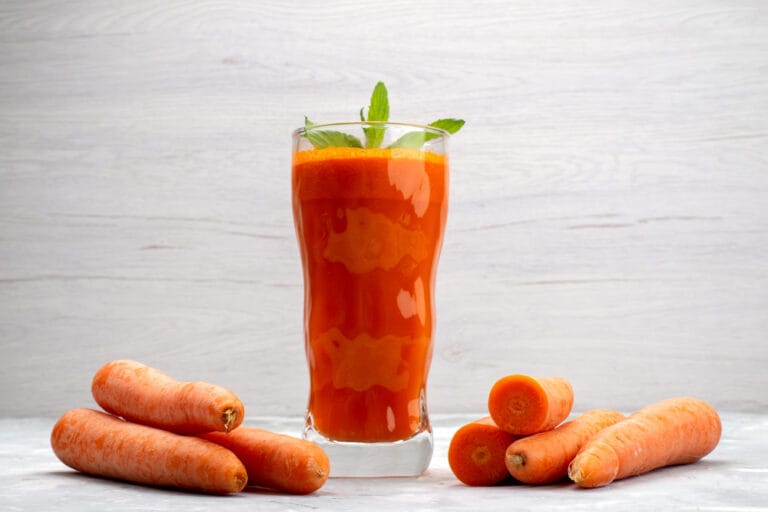FREE SHIPPING OVER $50
URGENT WARNING: Stop Using THIS Mouthwash Now to Slash Your Bowel Cancer Risk (Surgeon’s Shocking Discovery)
You probably reach for mouthwash every day, right? That refreshing swish, the tingle, the promise of fresh breath and a germ-free mouth. It feels like an essential part of your oral hygiene routine, a quick and easy way to boost your dental health. But what if that familiar bottle in your bathroom cabinet could actually be putting your health at serious risk? What if a product designed for cleanliness might be secretly contributing to a terrifying disease like bowel cancer?
It sounds shocking, almost unbelievable. However, a growing body of scientific research, backed by warnings from medical professionals, suggests a concerning link between certain types of mouthwash and an increased risk of serious health conditions, including colorectal (bowel) cancer.
The Unseen Connection: Your Mouth, Your Gut, and Disease

For a long time, the medical community viewed oral health and gut health as separate entities. But cutting-edge research increasingly shows they are intricately linked. Your mouth is the gateway to your digestive system, and the balance of bacteria in your mouth (your oral microbiome) can profoundly influence the balance of bacteria in your gut (your gut microbiome).
When you use certain harsh mouthwashes, especially those designed to be powerfully antiseptic, you don’t just kill “bad” bacteria. You perform a kind of carpet bombing, wiping out both harmful and beneficial bacteria. This disruption can have a ripple effect down your digestive tract.
The Mouthwash Culprit: Alcohol (Ethanol) and its Ripple Effect
The primary ingredient causing concern in many common mouthwashes is alcohol (ethanol). Many popular mouthwash brands contain significant concentrations of alcohol, sometimes as high as 20-27%. This is used as a solvent and a powerful antiseptic.
- The Shocking Discovery: Research has highlighted potential mechanisms by which high-alcohol mouthwash could contribute to cancer risk.
- Acetaldehyde Production: When alcohol interacts with bacteria in your mouth, it can be converted into acetaldehyde. This is a known human carcinogen, meaning it’s a substance that can cause cancer.
- Oral Microbiome Disruption: As mentioned, alcohol in mouthwash indiscriminately kills bacteria. This can lead to an imbalance in your oral microbiome, promoting the growth of opportunistic “bad” bacteria or even fungi.
- Nitrate-Reducing Bacteria: Specific studies have indicated that certain mouthwashes (often alcohol-based) can wipe out beneficial nitrate-reducing bacteria in the mouth. These bacteria play a crucial role in converting dietary nitrates (found in vegetables) into nitric oxide, which is vital for cardiovascular health.
- Dry Mouth and Irritation: Alcohol can be very drying to the delicate tissues of the mouth. Chronic dry mouth (xerostomia) not only makes you more susceptible to cavities and gum disease but also compromises the natural protective barriers of your oral mucosa, potentially making it more vulnerable to carcinogens.
The Surgeon’s Urgent Warning: Why Bowel Cancer?
While alcohol-based mouthwash has long been debated for its potential links to oral cancer (due to direct exposure to acetaldehyde), the connection to bowel (colorectal) cancer might seem less obvious. However, recent research is drawing a more direct line, which is why surgeons and oncologists are raising alarms.
The key lies in the oral-gut axis and the role of the microbiome.
- Systemic Inflammation: A chronically disrupted oral microbiome can contribute to systemic inflammation throughout the body. Chronic inflammation is a known driver of various cancers, including bowel cancer.
- Dysbiosis (Microbial Imbalance): The imbalance caused in the mouth can lead to shifts in the types of bacteria that enter your digestive tract. This can contribute to dysbiosis in the gut, where harmful bacteria outnumber beneficial ones. Gut dysbiosis is strongly linked to inflammatory bowel diseases and colorectal cancer.
- Specific Pathogens: Some research suggests that certain oral bacteria, when their populations are unchecked due to microbiome disruption, can migrate to the gut and play a role in promoting colorectal cancer development.
This is not to say that using alcohol-based mouthwash guarantees bowel cancer. Cancer development is complex, involving genetics, diet, lifestyle, and environmental factors.
What Mouthwash Should You Stop Using Immediately?
The primary concern is with mouthwashes that contain high concentrations of alcohol (ethanol). Look for ingredients like “Alcohol,” “Ethanol,” or “SD Alcohol 38-B” high up on the ingredient list. Many popular antiseptic and “original” formula mouthwashes fall into this category.
It’s not just about the burning sensation; it’s about the chemical reactions and microbial disruptions that can occur.
Your Action Plan: How to Slash Your Risk Today
The good news is that you have complete control over this risk factor. Here’s what you can do right now to protect your oral health and reduce your potential bowel cancer risk:
- Check Your Bottle: Go to your bathroom and look at the ingredient list on your mouthwash. If “Alcohol” or “Ethanol” is one of the top ingredients, consider making a switch.
- Opt for Alcohol-Free Mouthwash: The market is now flooded with effective alcohol-free mouthwashes. These options provide fresh breath and many oral health benefits without the risks associated with alcohol. Look for those containing ingredients like:
- Chlorhexidine Gluconate: A powerful antiseptic often prescribed by dentists for specific conditions (but not for long-term daily use without supervision).
- Cetylpyridinium Chloride (CPC): An antimicrobial agent found in many non-alcoholic mouthwashes.
- Essential Oils: Some natural mouthwashes use essential oils like peppermint, spearmint, tea tree, or eucalyptus for their antimicrobial properties.
- Xylitol: A natural sweetener that also helps fight cavities.
- Focus on the Core of Oral Hygiene: Mouthwash is meant to be an adjunct to your routine, not a replacement. The foundational pillars of excellent oral health remain brushing twice daily, flossing daily, and regular dental check-ups.
- Support Your Oral and Gut Microbiome: Beyond avoiding harmful ingredients, actively supporting your beneficial bacteria can be protective.
- Diet: Eat a balanced diet rich in whole foods, fiber, fruits, and vegetables.
- Probiotics: Consider oral probiotic supplements or fermented foods to encourage a healthy microbial balance.
The Bottom Line: Prioritize Prevention
The link between high-alcohol mouthwash and serious health risks, including bowel cancer, is a growing area of concern for medical professionals. While research is ongoing and complex, the potential risks associated with an easily avoidable ingredient should prompt immediate action.
Related Articles
- Think Your Toothpaste is Safe? The Shocking Ingredient You’re Brushing With Daily
- I Avoided the Dentist & Got a Celebrity Smile Using These Peroxide-Free Whitening Strips
- Dentists Hate This: 8 Flossing Secrets They’ll Never Tell You (Number 5 Is Gross)
- Is Teeth Whitening Ruining Your Smile? The Truth You Need to Know
- Dentists Reveal: Is an Electric Toothbrush Really Better—Or Just Hype?







